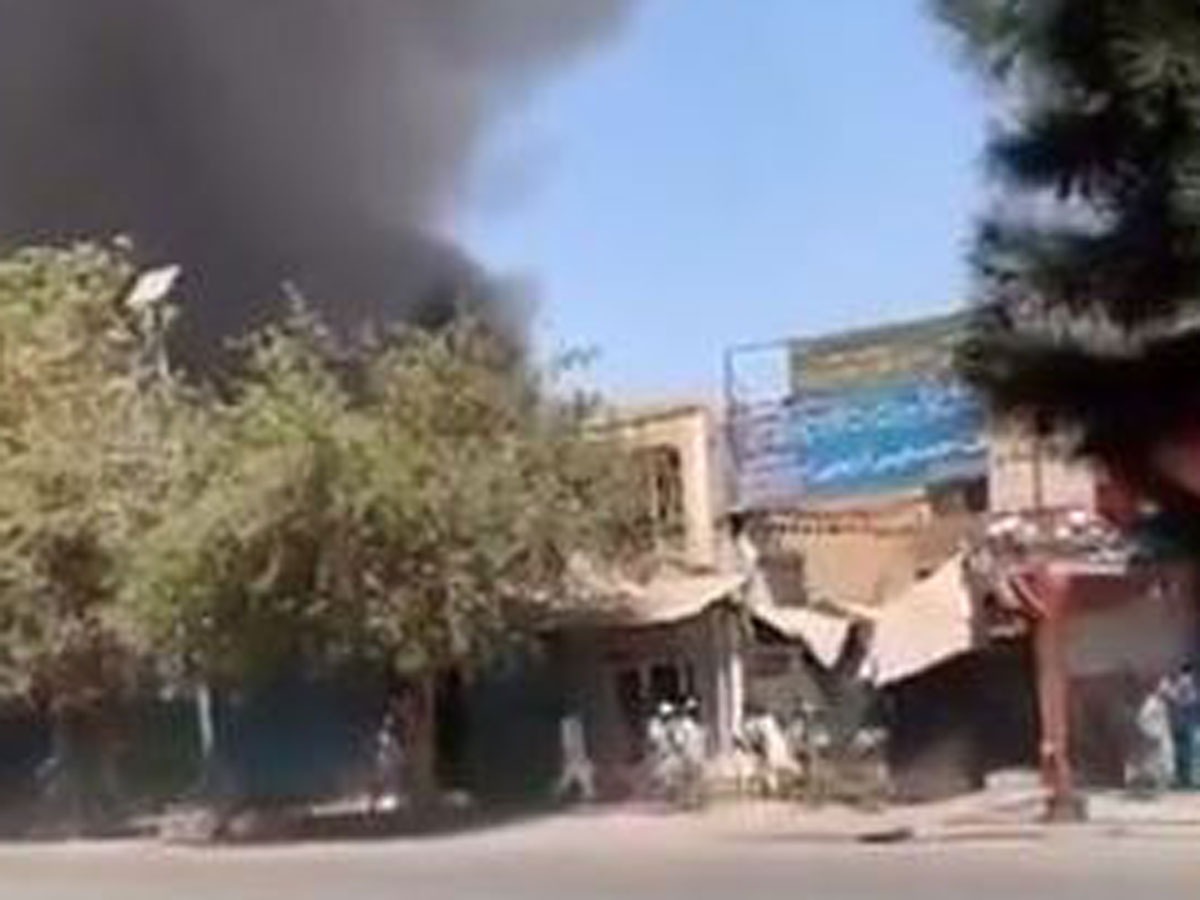Rising Taliban threat to entire Asian region as US retreats without any mechanism for peace
MyView
Taliban threat
Afghanistan has yet again become the hotbed of violence and destabilisation of the Asian region after the Americans started pulling out of this beautiful mountain country, leaving a volatile nation to fend with internal siege laid by the unrelenting Taliban forces.
The situation has gone so out of hand that India has had to abandon its multi-level engagement policy in which some parts of the Taliban were also included. Amid rising violence and targeting by the Taliban forces, it has now ordered a special aircraft of the Indian Air Force to evacuate the staff as well as the Indian citizens from Afghanistan’s Mazar-e-Sharif, the fourth largest city of the country.
“A special flight is leaving from Mazar-e-Sharif to New Delhi. Any Indian nationals in and around Mazar-e-Sharif are requested to leave for India in the special flight scheduled to depart late today evening,” the Indian consulate in Mazar-e-Sharif tweeted.
Indian citizens desiring to leave by special flight should immediately convey their full name, passport number, date of expiry by WhatsApp at the following numbers:
078 5891303
0785891301— India in Mazar (@IndianConsMazar) August 10, 2021
The Consulate has asked Indian citizens who want to leave by the special flight to submit the details like their full name and passport number to the Consulate immediately. However, the Consulate in Mazar-e-Sharif will continue to operate through the local staff members.
(2/2) Indian citizens desiring to leave by special flight should immediately convey their full name, passport number, date of expiry by whatsapp at the following numbers:
0785891303
0785891301— India in Mazar (@IndianConsMazar) August 10, 2021
After more than two decades of messing up this rugged nation of high spirited Pathans, the US pullout is happening without the Americans making any cemented political arrangement in the absence of which Afghanistan has yet again been pulled down into a well of never-before violence by the Taliban, trying to overpower the Government and the people to follow their brand of regressive, radical Islam.
Considering that Taliban was in a way an American creation, there should have been a plugging mechanism put in place by the retreating American soldiers to keep the Taliban backlash at bay. But nothing of that kind happened and the result is for Pakistan and India to bear as a volatile, convulsing Afghanistan cracks up the region’s stability as China looks on, more worried than aggressive.
China shares a small boundary with Afghanistan and a return of Taliban would be detrimental to its crusade against a group of radical Uighur Muslims who make the border province of Xinjiang. If the Taliban get a grip over Afghanistan, the dreaded East Turkistan Islamic Movement will get a fillip, something that China would much rather avoid.
In July, meanwhile, India had pulled out around 50 diplomats and security personnel from its consulate in Kandahar. According to Government data, around 1,500 Indians are currently in Afghanistan.
Only recently, India lost an inspiring award-winning journalist in the area with no further action on the front. It has deep-rooted economic and developmental projects embedded in Afghanistan which will be destroyed to high cost if a terror organisation like the Taliban takes hold.
In the last few days alone, the Taliban has assumed control of six Afghan provincial capitals, mainly in the north of the country, including Kunduz, the sixth-largest city in Afghanistan.
The Taliban continue to capture new areas and subsequently impose a regime that intends to take Afghanistan to those old days of utmost repression under its rule.
Alarmingly, and with no one to put a stop to their activities, the Taliban has made rapid advances across Afghanistan by resorting to widespread violence since the US began withdrawing its troops on May 1.
Though the US evacuation will be completed by August 31, 2021, there is hardly any effort on its part to take hold of the situation and simmer down tensions which are reaching their climax.
The complete lack of understanding of local sentiments, politics and society by the invading American Army since 2001, in a way, led to the strengthening and fuelling of the Taliban movement and now that the Americans have departed without closing a war they started, there is hardly any way out. Not that America, all those thousands of miles away, has any stakes left in Afghanistan.
While America is learning to live with the dictum of battles won but the war lost in Afghanistan, it is India and other Asian nations who are at the receiving end of the American and Russian misadventures in Afghanistan.
It’s not just the Pakistanis who share a long boundary with Afghanistan and have been playing a hide and seek game with Taliban, who feel threatened with Taliban trying to pressure the border population of Pakistan into following a stricter Sharia regime.
Russia has strategic stakes in Uzebkistan and Tjikistan which might fall off the ladder if the Taliban movement manages to push migrants into these two small nations.

